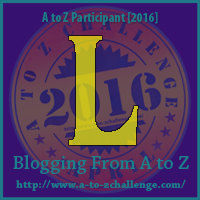 (No alternate words.)
(No alternate words.)
From Academician Múírí Larathyr-ith-Lyrian, Fellow of the Sodality of Commutative Logotecture, Associate Proctor of the Conclave of Linguistics and Ontology, Loremaster of Linguistics, Semiotics, and Memetics, to the Ecumenical Commission of Translation and Conversion, greetings.
With respect to the views of the Commission and those expressed by various submissions to the commission, it remains my opinion, and that of my colleagues, that “lore” and its semiotic equivalents in other language remains the best cognate available for the Eldraeic alath. While it is in many languages of the Accord an archaic term (and thus may result in degrees of cognitive dissonance when speakers of such languages are confronted with compounds such as “spacer lore”, “nanolore”, et. al.), it is our belief that it properly reflects and thus aids in understanding the nature of the development of knowledge among the eldrae.
Unlike many civilizations whose discovery of the scientific method came as a revolutionary change of paradigm, or is perceived as such, for us the insights of Sung Iliastren and his successors formed an evolutionary phase in the search for truth; and while much of the knowledge attained by prescientific, if we may so inaccurately term them, methods was invalidated by later discoveries, we see this itself as merely part of the process of testing and refining hypotheses. Epistemology applied to itself, if you will. As such, we continue to revere the ancient scholars in fields from astronomy through chymistry to now-obsolete sorcery as fellow seekers for truth, and feel no need to discard their terminology where it remains appropriate.
I observe one of the citations offered in support of the proposal to change this translation is the various replacement terms found in the Magen dialect. While as an Imperial logotect I naturally consider this bastardized form of the language with some distaste, I would root my objection to their terminology in that the bastardized language in question belongs to a bastardized culture, which has perverted the forward-looking attitude and enthusiasm for genuine progress into a disdain for tradition and fatuous love of novelty for its own sake, hence their eagerness to replace functional words with “improvements” of no greater meaning or precision simply for the sake of doing so – something which must be rejected by any professional logotect or well-educated speaker as a matter of principle!
A third consideration is the number of related cognates (loremaster, as both a word and an academic ranking; loreworks; various trade names; etc.) which would also have to be altered in the course of execution, or otherwise lose their base root.
In closing, we must therefore reject the proposal at hand unless significant evidence of failure to understand within a sample set of educated speakers (per relevant IOSS) can be brought to our attention.
Given under my hand and seal this day,
Múírí Larathyr-ith-Lyrian
